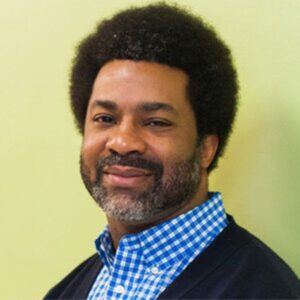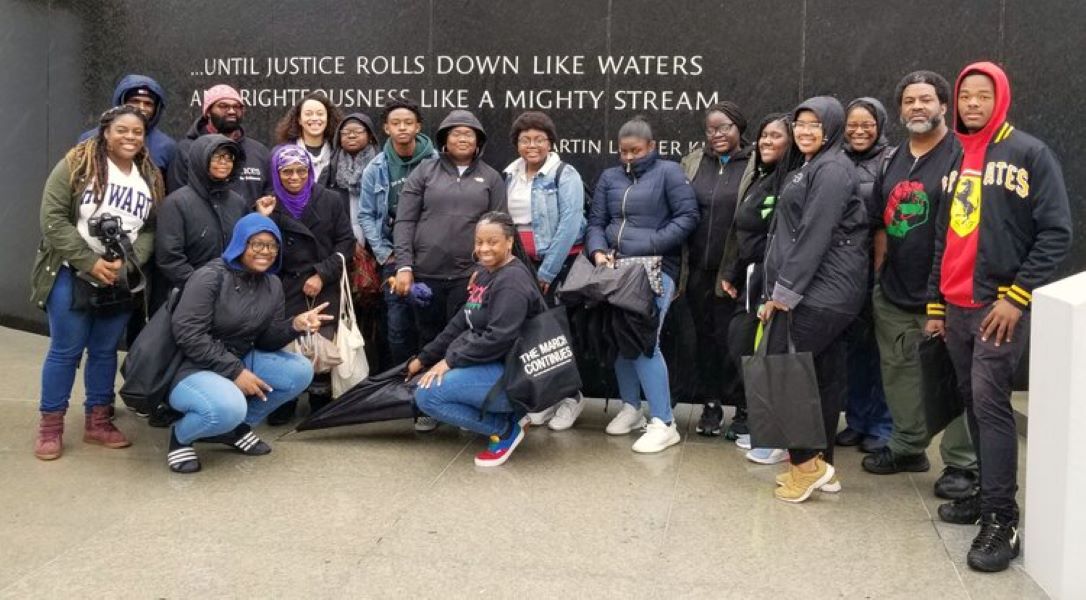Horace Ryans III doesn’t go to protests; he doesn’t like marches, that helpless feeling of hundreds of people gathered while one cop somewhere (for example) has led them all to feel dismay.
Ryans is a different sort of activist: He’s a teacher. A Black teacher, of Black children. “All my life I’ve been around people who have instilled in me this value of community and to do something about all the things we face every day, not just as Black people but as humans,” he says.
“This is my form of activism. I like to change lives inside a classroom.”
Ryans, a Philly native who is now a freshman at Morehouse College in Atlanta, is the son and nephew of educators; he logged thousands of hours of community service from middle school through high school, and worked for the School District of Philadelphia on professional development programming. But it wasn’t until he met former Mastery-Shoemaker principal Sharif El-Mekki, founder of the Center for Black Educator Development (CBED), that his ambition settled on a teaching career.
“People see now that it is important for students to have same-race teachers; we are here to help them take it from being important, to being a priority.”
Now Ryans is one of four inaugural fellows to emerge from the CBED, El-Mekki’s growing program to train and support Black teachers in Philly and beyond. In partnership with the United Negro College Fund, the fellows received last dollar scholarships to study education at their universities, with the promise of a bonus if they come back to Philly to be teachers.
They are in addition to 24 people who have gone through CBED training, and are now teaching in classrooms around the city, and 99 teacher apprentices across 14 states — a side effect of being forced into virtual programming, available to anyone anywhere, during the pandemic. It is a small but significant start to what El-Mekki hopes will be a robust and sustainable pipeline of Black teachers—including Black men — in schools throughout the country.
“Interest in our program has changed, as the mindset has changed since 2020,” El-Mekki says. “People see now that it is important for students to have same-race teachers; we are here to help them take it from being important, to being a priority.”
Formally launched as a summer program in 2019, CBED went online in 2020, then did both in-person and virtual programming in 2021, which allowed the organization to grow rapidly since The Citizen last wrote about it. This summer, CBED will again run its summer school/teacher training program at two locations in Philly and one in Camden; and it will launch an in-person program in Detroit, its first city outside the area. (CBED is supported, in part, by Spring Point Partners, which also supports The Citizen.)
CBED’s teacher training work is long-term — 12 years to be exact. Like Ryans in his first year with the program, high school students serve as what’s called junior service leaders, learning from mentors and working one on one with young students in the summer program. College students are service leader apprentices; they combine teaching small classes of elementary school children with lessons of their own that explore the history of teaching from a Black lens, starting with ancient Egypt, through the Civil Rights Movement, to modern-day perspectives on culturally-appropriate teaching methodology. Then, when they become teachers, CBED supports them for the first four years of their careers with additional professional training.

The goal, as El-Mekki has often said (sometimes for The Citizen), is not just to put Black teachers in classrooms. The goal is to put well-trained, competent and well-supported Black teachers into every school, armed with the knowledge and cultural understanding of the communities in which they work.
“We don’t have Black teachers in our back pockets,” El-Mekki says. “We have a model that can help you develop the pipeline, and develop the atmosphere they need.”
Black students are in desperate need of Black teachers
There’s a long way to go. In Philly, nearly half of public school students are Black, but only about 24 percent of teachers are, and less than five percent are Black men. (Nationally only two percent are Black men.) That makes students like Ryan, who had only three Black teachers — one of whom was a man — in 12 years of public schooling in Philly, a rarity.
El-Mekki acknowledges a truth that is unavoidable in any conversation about teaching: This is a particularly hard time to be a teacher, politically, economically and physically. Even before the pandemic, nearly 50 percent of teachers were leaving the field within the first five years, closer to three in urban districts like Philly’s.
Meanwhile, research shows that having just one Black teacher early on in a child’s life reduces the likelihood of a Black student dropping out of school by up to 39 percent; having two Black elementary school teachers makes them 32 percent more likely to go to college. For Black boys from low-income households, having two Black teachers makes them 40 percent more likely to graduate from high school.
This is critical in a city with 25 percent poverty, where the overall graduation rate is about 75 percent, in a state that ranks in the bottom five in terms of the Black-White disparity in access to educational opportunity, according to a 2020 report by Research for Action. Changing who leads classrooms and schools will not fix everything that is wrong in our education system, but creating an environment that caters to the students who need it most is one way to harness their success.
Over the last three years, CBED has broadened its scope beyond teaching teachers. It is heavily involved in policy advocacy work, as part of the Pennsylvania Educator Diversity Consortium, and the 1 Million Teachers of Color Campaign. CBED pushes for better teacher pay through the Teacher Salary Project, which supports highly-effective teachers getting rewarded accordingly. And, El-Mekki points to work his group has done with Pennsylvania Democrat Sen. Vincent Hughes and Republican Sen. Ryan Aument on Senate Bill 99, which aims to diversify the educational workforce through several state-sponsored programs, including increasing dual-enrollment programs that allow high schoolers to earn college credits.
Locally, El-Mekki is working with Philly’s Chief Education Officer Otis Hackney to carve out funding specifically for education majors from the $5 million allotted for Catto scholarships to Community College of Philadelphia. And he’s creating, with Science Leadership Academy at Beeber, a “teacher academy” for students who want to be teachers that will include coursework and apprenticeships for 10th through 12th grade on teaching from a Black historical educational lens. “If you’re an 8th grader here, interested in arts, music, STEM, athletics you know what school to go to,” El-Mekki says. “If you’re interested in teaching, they tell you to go babysit. We’re saying clinical experience and training is just as important for aspiring teachers.”
Racial justice requires educational justice
El-Mekki acknowledges a truth that is unavoidable in any conversation about teaching: This is a particularly hard time to be a teacher, politically, economically and physically. Even before the pandemic, nearly 50 percent of teachers were leaving the field within the first five years, closer to three in urban districts like Philly’s. Now, teachers across the country, including here in Philly, are leaving their jobs in unprecedented numbers—which means recruiting and training young people to the field has both an added urgency and an added complication.
“It’s always a challenge to work in any profession in which you’re serving people,” he says, then points to his own experience by way of illustrating how he convinces students like Ryans to take up teaching. Always social justice-oriented, El-Mekki was on his way to law school when he was shot three times during an altercation after a football game. After 12 surgeries, and several weeks in the hospital, he decided to do social work, which led him to become a counselor at the Youth Study Center, to try to help kids like the one who had shot him.
As he wrote for The Citizen a few years ago, he never even made it out of orientation:
Although the youth at the YSC desperately needed help, I yearned to find them before they entered such a place. I was depressed at the thought of seeing kids as young as 12 in what would constitute as a kiddie jail. I didn’t just want to disrupt the school-to-prison pipeline by working within the system. I wanted to join people working hard to dismantle it by ensuring our youth had a great education and great opportunities to match. I needed a proactive way to fight for justice and equity. I needed to be in a school.
This same spirit of service towards justice is what El-Mekki says drives his apprentices, young men like Ryans who are passionate about social justice and open to the role that education has to play.
“What we found is many students are keenly aware of injustices, and they know it’s not just in society, but also in schools,” he says. “They know where they feel most honored and challenged, loved and respected. You can’t reach racial justice unless educational justice is part of the calculus. The purest form of activism is teaching Black children well.”
![]() MORE ON TEACHING FROM THE CITIZEN
MORE ON TEACHING FROM THE CITIZEN



